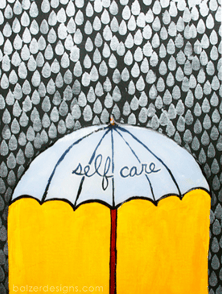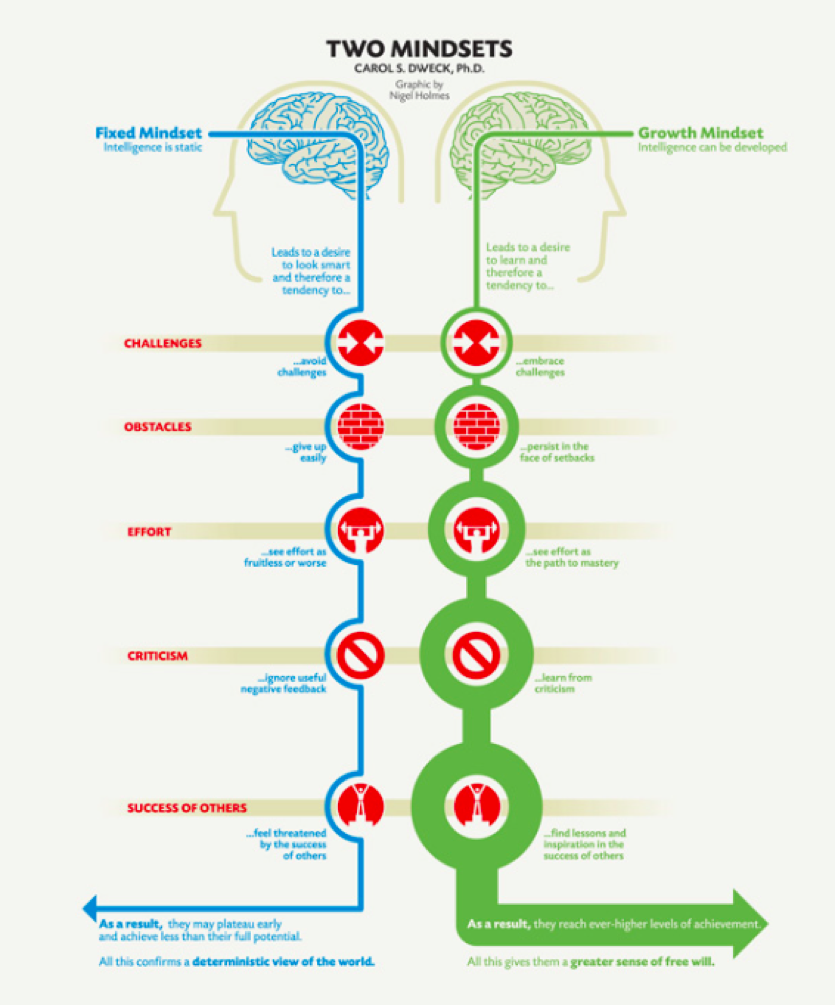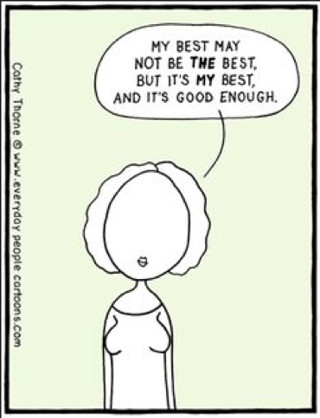We've covered a wide range of territory in the past 4 months, from developing skills in mindfulness-based stress reduction to fine-tuning our routines, diets, and athletic activities for optimal academic success. What results from this potpourri of advice and ideals can be, paradoxically, a sense of pressure to strike the perfect balance in our lives, attaining good grades without sacrificing our physical health, our time with friends, or our space for self reflection. Many high-achieving students are driven by a sense of perfectionism that can feel overwhelming, so how can we best harness it? While still achieving the big dreams that we have?

"Self care" is a popular buzzword in our culture today, encouraging us to take time for the things that we love to do and that re-invigorate us, but it's also one of those things that's so much easier said than done. Given how hard "self care" truly is, it's often tempting to procrastinate and to reassure yourself, "Once I get done with these AP exams, I'll get back into running or I'll go on that trip with my dad." What I've come to realize, though, over the course of high school, college, two years of post-grad life in a job, and now, medical school, is that life continues to be hectic. There is always Something Else we could be doing with our time: whether it's studying for an upcoming exam, refining an essay, or getting involved in research.
So to cope with this, what I've been working on lately has been: (1) accepting the reality that life will not become more 'balanced' or less hectic in the future, and (2) when I do take time for myself, I strive to be as present as possible in whatever I am doing, rather than worrying about what I could be doing or need to finish in the future. Again, these tasks are hard to do, but I'm encouraging that the earlier we can start practicing these habits, the better off we all will be in the future.
The "Growth" versus "Fixed" Mindset
Needing to prioritize finite time and resources is certainly one piece of the puzzle, but another piece is probing more deeply into our drive for perfectionism, since that's often what monopolizes our time, compelling up to stay up late working on an essay or studying for a test. As I mentioned above, this drive often enables us to thrive. But I think it's also worth all of us exploring our mindset around learning and how we've constructed our identities as students. Are we willing to ask a question in class if it reveals that we do not know something? Do we seek feedback, even if it may be negative? Do we feel that our sense of self worth and intelligence is threatened by a bad grade, or do we look for how to improve and what to work on for next time? Many of these questions get at what educators refer to as "growth" vs. "fixed" mindset in learning, diagrammed below. I believe that cultivating a "growth" mindset can be protective against the fear that not performing "perfectly" will reflect poorly on who we are fundamentally as people, thinkers, athletes, etc. Having a growth mindset is about valuing the process and effort we put into our work, not just the end result (or identity that may form).

I want to close with a few thoughts on when perfectionism may in fact be tied to something else more harmful to our health and well-being and for which we may need to seek help. For instance: if you find yourself analyzing and dwelling on certain thoughts and you feel unable to stop focusing on things that you don't want to think about, then you may want to bring this up with an adult who you trust. These thoughts, such as focusing on your performance or something you're studying, may seem just part of normal high-achieving, but if you find it distracting or anxiety-provoking, it may be something for which you want to seek help (such as short-term therapy that can guide your thought patterns to alleviate anxiety and obsession).
Perfection over body image and eating habits can also slide into the territory of harming our health and well-being. Thus, if you find yourself spending a significant amount of time analyzing what you eat during the day, your figure in the mirror, calories counts, or calories burned by exercise, seek out a trusted friend or adult. This brings us back to the danger of the "fixed" mindset, or the notion that there is one ideal body type (thin, muscular, etc.) to strive for. We are so hard on ourselves -- critical of our appearance, of how we're doing in class, whether we're being a good friend -- so I'll leave with the simple reminder to be kind and compassionate to ourselves. I don't think we're taught that enough as kids or reminded of that enough as adults.
 Are you interested in learning more about strategies to keep you mentally, physically, and (therefore) academically healthy? Read more below!
Are you interested in learning more about strategies to keep you mentally, physically, and (therefore) academically healthy? Read more below!
Comments